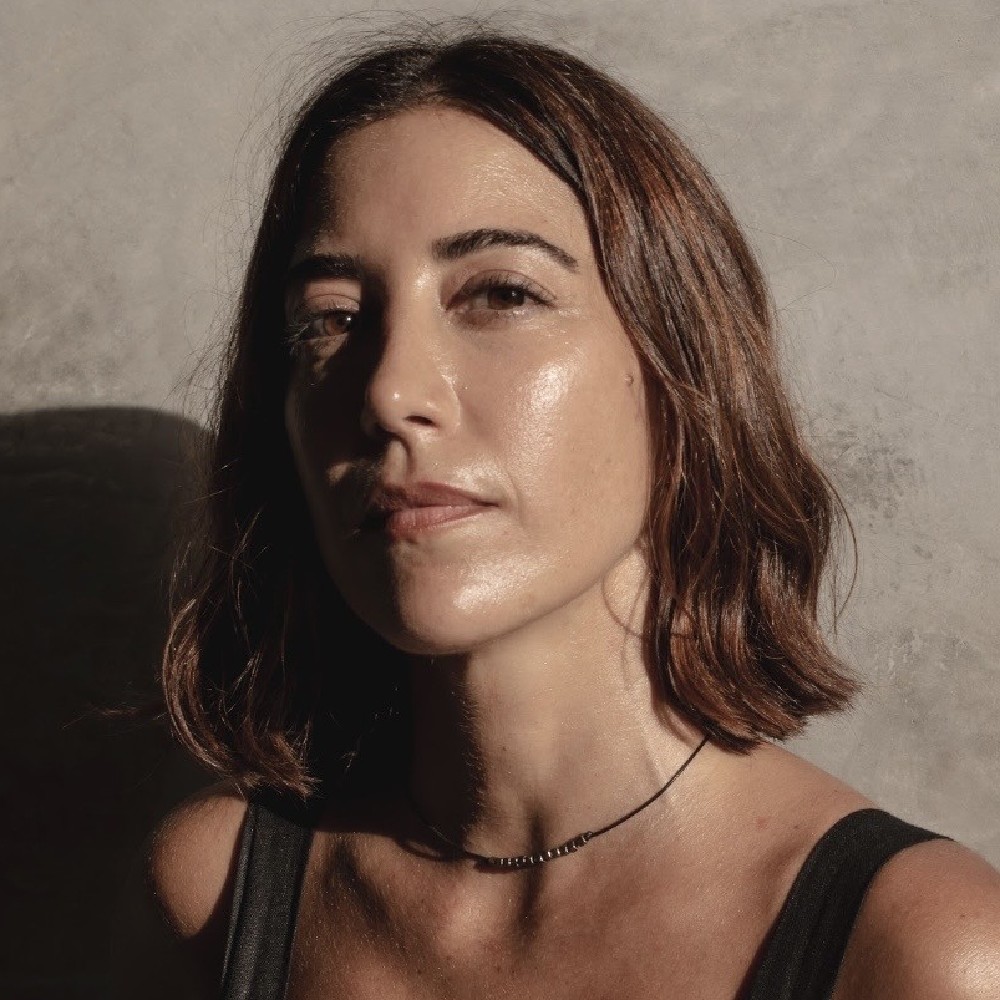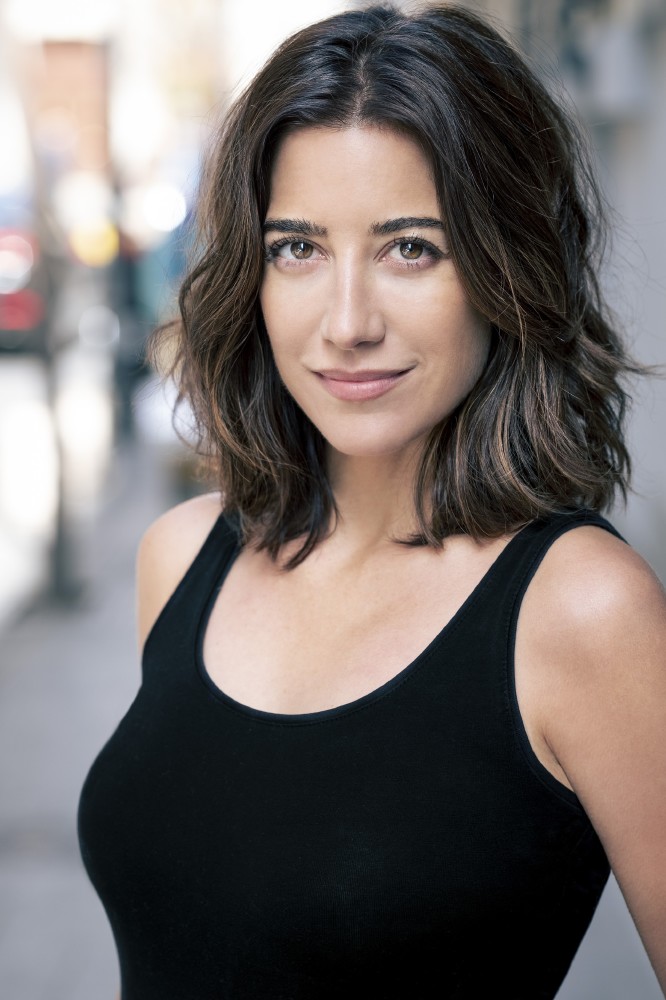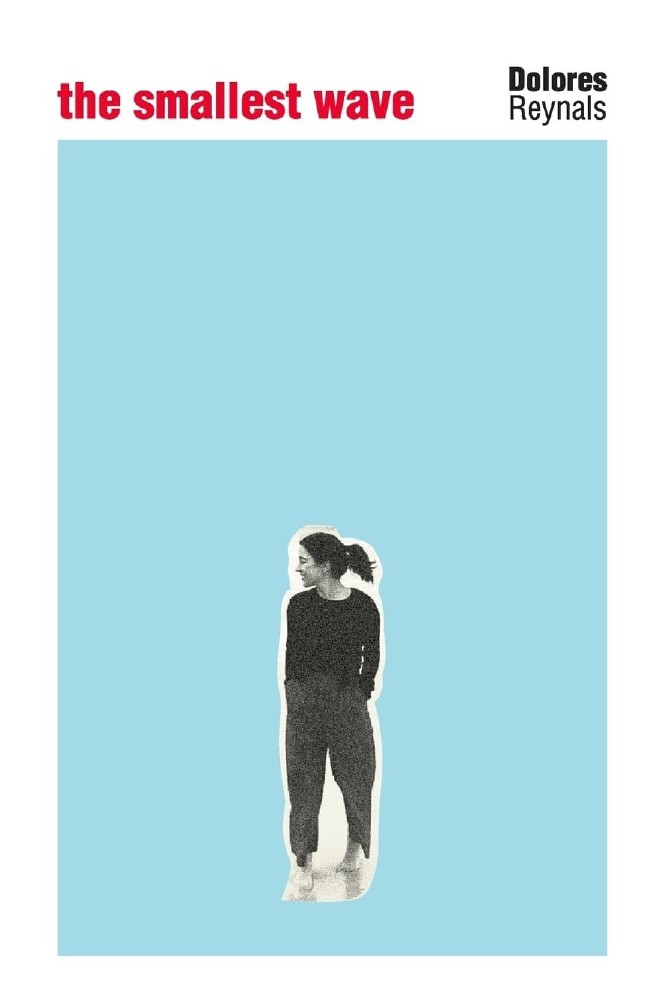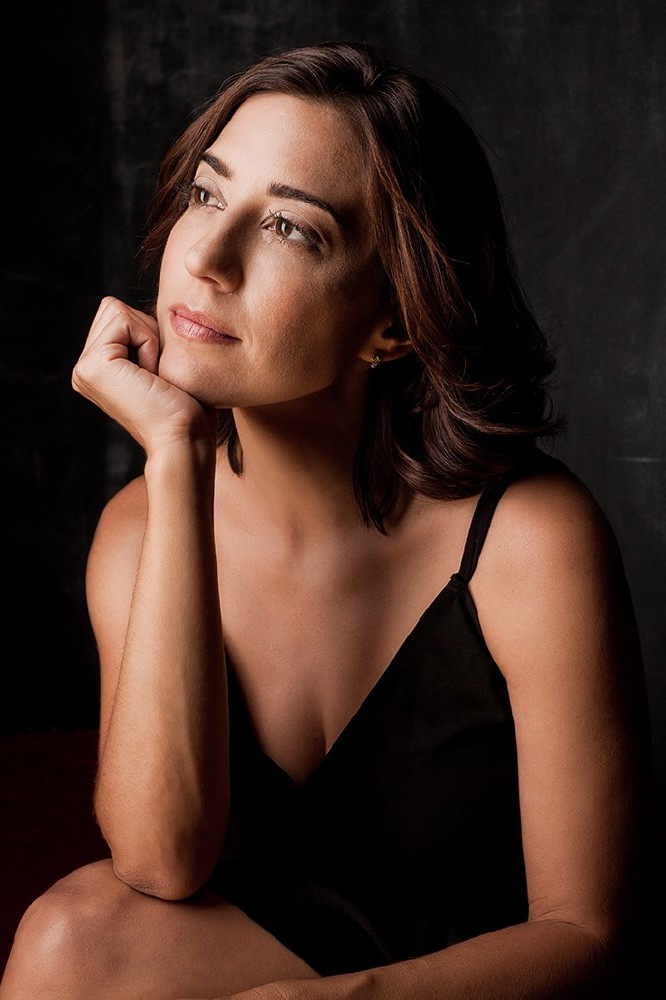Have you ever dreamed about living a nomadic lifestyle, moving from country to country rather than being anchored in one location? We speak to actress and The Smallest Wave author Dolores Reynals, who’s unwavering desire for personal freedom has made her a true citizen of the world.

Dolores Reynals
Q. What motivated you to write your memoir, The Smallest Wave?
A. Some years ago I was in a relationship where I was having the conversations around commitment and the future, and I felt that I was expected to want to be married. I had never thought about marriage as something I needed or wanted, and this was the first time I really felt the weight of that expectation. I was also supposed to change my last name, which in Argentina, where I am from, nobody does—as if it was part of the package of ‘being chosen’.
There were all these expectations placed on me, not just by my partner but by society and some even by myself. I felt so uncomfortable with this and it made me question whether there was something wrong with me. I felt alone among these questions, and I wrote a story about going to a wedding when I was 12 and how strange this event was to me. I needed to understand myself and where all this came from. Then I started going further back in my childhood, and things snowballed from there.
Q. What does the book’s title mean?
A. It means that there can be power in the smallest thing. There can be strength in the most invisible tiny action—it all comes from the same universal power. However we feel and in whichever position we find ourselves, we can be authentic and fierce.
Q. What do you hope women readers gain most from reading your life story?
A. I only hope someone connects to it and feels seen, or gets something useful from it. Some people tell me they have read my “heart-breaking” book, others have described it as my “hilarious” book. So I cannot hope anyone gets anything in particular.
Q. What was the most difficult episode of your life to revisit when writing the memoir, and why?
A. It wasn’t easy revisiting quite a few episodes. Maybe the harder ones were the closest to the present time, because my brain has not yet made them ‘poetic’ with the passing of time. Another example of an episode that was difficult to revisit was my birth story, where the doctors thought I was dying and even told my mother I was dead. I saved myself by screaming. I still find it uncomfortable to talk about this no matter how many times I go into it, and how much comedy I also find in it.
I easily connect to all the emotions within the stories, even if now they are faraway stories and mostly ‘healed’ memories. Still, in all of those I was writing for a reason, trying to find out something more, so I definitely I wanted to talk about it and did not doubt it.

Q. Who are your literary inspirations and how have they helped shape you as a writer?
A. Gabriel García Marquez was the first writer I hugely admired when I was in school, and of course Shakespeare. I once wanted to be a translator of his work, because the Spanish versions were so far from the original and it made me mad. I felt like they tried to make his writing pompous and I understood that he wasn’t like that at all. Later I discovered Jack Kerouac when I left home, and I felt inspired by his way of traveling, and I liked how free he was as a writer (I did a hitch-hiking trip around Patagonia when I was 19, which was very dangerous to do, because I had just read On The Road. I didn’t tell anyone I was doing that, or they would have stopped me, and they should have).
Then Orhan Pamuk really moved me. And when I was a teenager, my father had a book of Patricia Highsmith stories and I used to imagine them as films. I used to read more male writers when I was younger, because that is what we got at school. Later on I began to read more and more women. I loved Sylvia Plath, I immediately read The Bell Jar all over again when I finished it. I was inspired by Marguerite Duras, then Patti Smith, and more recently I loved discovering Bernardine Evaristo, and Ariana Harwicz who blew my mind, she is the most free of anyone I have read so far. I am now really into a book of poems by Ancient Greek poet Sappho because I recently moved to Greece and I wish they had taught us her poetry at school. I think everyone you read influences you in a way. I don’t know how exactly—maybe it’s good to leave it in the unconscious.
Q. You live a nomadic lifestyle, having lived in many countries rather than settle in one. What are the benefits and downsides of a nomadic lifestyle?
A. I have an explorer personality, so it feeds that part of my soul. Saying that, many times I have tried to settle somewhere. When I first arrived in London I thought that’s it, I will be here forever but since then I’ve left and returned a few times. I move when I feel that a new place calls me or that a time somewhere has ended. The only time I moved constantly was in 2002 when I was roaming around with all my belongings and didn´t know where I wanted to stay. All I knew was that I wanted to keep moving without settling, and I visited some very special places.
Something good I have gained from this is a capacity to adapt, to be flexible, and to be open to surprises. To understand that there are so many different points of view and ways of life, and to respect them. You really begin to see that another country is like another world you didn’t know anything about. I have also gained confidence in knowing I can start again from zero in a place I don't really know and where I don’t know anyone.
Downside? As soon as I arrive somewhere, all my insecurities come out for some reason. It is like the ground is taken from beneath my feet for a while. I see the parts of my identity associated with the place I lived in. Who am I outside of my last home? I barely know anyone and nobody knows me. I feel like a ghost. It is a fresh start and a blank page which can be very scary. It can also be very lonely in the beginning, and my mind gets tired from all the new information. I really have no idea what this new life will be like, I have to be OK with uncertainty. It really is like I kill a life and begin a new one, brutal in a way, and I need to mourn the life left behind and be patient with myself. In time, I begin to feel confident again and then there is more excitement than anything else. People think I do this like a breeze but the internal turmoil is enormous on me every time.
Q. What’s the country that you’ve enjoyed living in most and why?
A. I am so glad that the UK was where I became an adult. London is a place where people can be who they are. It is more open minded than other cities, and it was a great place to go to university, to study, and to see all kinds of art from all over the world. I loved being in a cosmopolitan city, surrounded by people from everywhere—which I had always longed for. It is where I have stayed the longest, about 16 years in two different times.
Mexico was magical. It has the most warm-hearted people and, of course, being in Latin America feels easy to me, being Argentinian, because we have the same codes and values, so socially it was the easiest place to be. And then Los Angeles, because I had a beautiful community there, and I felt full as an artist as there is so much opportunity in that city. I also loved the closeness to the ocean and being able to go hiking on a hill any day of the week.
Q. What have you learned most from a nomadic lifestyle?
A. I’ve certainly learned that I take myself with me everywhere I go. The element of escaping which is present in moving around has made me reflect about when I have changed scene to change myself. I’ve learnt things about myself I would have never discovered, like my resourcefulness and adaptability.
I’ve also come to appreciate anyone who is also an immigrant, because I understand from experience how difficult it can be. For instance, learning another language. People say English is easy but try to be fluent! Sometimes walking around London I would think to myself how half the people I saw in the street were once trying to get the verbs and tenses right again and again, just like I did. They have had to become OK with not being understood or able to express something so many times. I am now learning Greek and I am trying to have patience with myself. It will take time.

Q. What advice would you give to readers who might fancy following in your footsteps and living a nomadic life?
A. Have an open mind. However you do things at home, things may be different somewhere else, so be flexible. Also, have a lot of patience with yourself in a new place because every country and city has its own rhythm and if you try to force another rhythm to it, you will only suffer. In addition, make an effort and learn the language; you will have a different life than if you just speak English where this is not the first language. Languages take a lot of work but with dedication you can learn them. Being immersed in a country where English is not the first language certainly helps!
Q. Everyone imagines starring in a movie is as exciting and glamorous as it comes. What’s it really like?
A. It is exciting, it can be very immersive and intense, and fun, and it is not glamorous at all. The call times are never gentle, you often wake up at 5am and the hours are long. Sometimes you are filming all night pretending it is the day-time, there isn’t any glamour that I have experienced. You are giving your whole self to the work, so emotionally and physically it takes a lot from you. We do it for the love of it and the chance to make people feel.
Q. Tell us about the movie project you are currently working on?
A. I am producing a film about the life of the first female tango singer, Rosita Quiroga. She changed tango and the music industry in my country, Argentina, and women’s place in it. She should have been more well known, so I want to shed light on her because her story is brilliant and she was such a talented and hilarious and admirable person. The whole music scene in Argentina in those times was so exciting. I want to see more of that: more stories about women in South America. Two amazing writers are working on the script now and I cannot wait to share this story.
The Smallest Wave by Dolores Reynals is out on Amazon now, priced £12.99 in paperback and £3.19 as an eBook. Visit www.doloresreynals.com
Exclusive Extract from The Smallest Wave by Dolores Reynals
In this exclusive extract from The Smallest Wave, Dolores Reynals recounts a defining memory of attending a cousin’s wedding when she was a child.

That next day in the downtown mansion that was rented out for the big event, Bárbara and I locked ourselves in one of the bathrooms where she started applying the baby blue eyeshadow. I looked at her reflection in the mirror.
“We have to make a plan to catch the wedding bouquet,” she said.
“Ay no. I don’t want it.”
“You don’t want to catch the bouquet?! Okay, we have to make a plan so I catch it.”
“Okay. If I catch it, I will pass it to you.”
“Great! Would you like some eyeshadow?”
I looked in the mirror and was sure that it would not improve my sailor look one bit. I hated my mother for making me wear a child’s outfit and hated myself for not having any idea how ridiculous I would look and feel in the now too-short in a non-attractive way dress. I declined the eyeshadow.
When the bouquet-throwing time came, Bárbara and I made our way towards the dance floor, which began to get crowded with women. I followed Bárbara right into the middle of the crowd.
“Throw it to meeeee! Throw it to meeeee!” shouted the women.
Claudia got on top of a table at the front, teasing to throw the bouquet in one direction or another, towards which the women moved, pushing and elbowing each other. Screaming. I slowly began moving out of everyone’s way. Bárbara hadn’t noticed I wasn’t right next to her anymore. Great, because I was not so sure about this. I didn’t know exactly what was so disturbing to me about it all, but I wanted to be as far away 31
from it as possible. I had soon made my way out of the crowd. What was wrong with me? Maybe I am not a real woman? Was every woman in the room who wasn’t married there?
Yes, they were.
Are there any women out there in the world who don’t want to fight and scream for this silly bouquet? I hope they do exist.
Tagged in author facts

